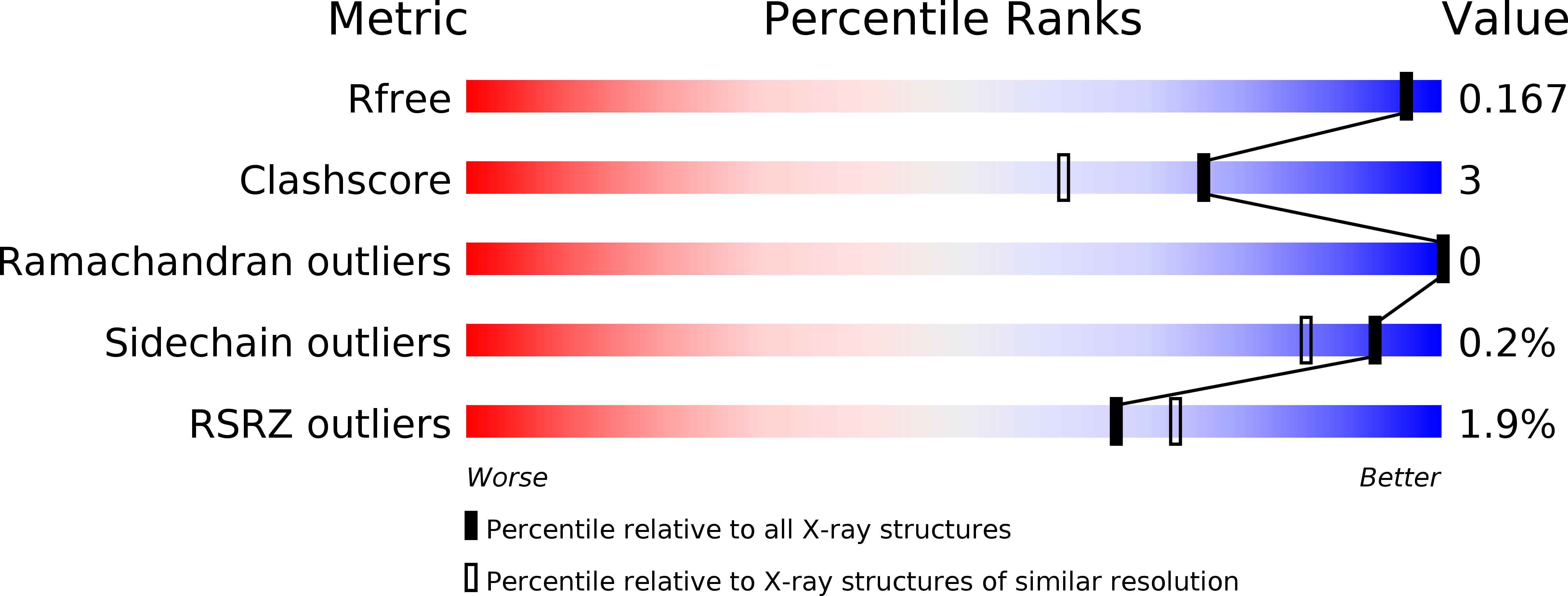
Deposition Date
2019-02-20
Release Date
2020-03-18
Last Version Date
2024-11-20
Entry Detail
PDB ID:
6QSC
Keywords:
Title:
Crystal Structure of Arg470His mutant of Human Prolidase with Mn ions and GlyPro ligand
Biological Source:
Source Organism(s):
Homo sapiens (Taxon ID: 9606)
Expression System(s):
Method Details:
Experimental Method:
Resolution:
1.57 Å
R-Value Free:
0.16
R-Value Work:
0.14
R-Value Observed:
0.14
Space Group:
C 2 2 21


